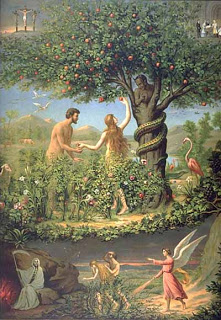but less people sinning?
ever before—more adultery, abortion, situational ethics, etc. Yet, if committing a sin requires a person to
know it is a sin and choose to commit it anyways, doesn’t that mean a lot of
people are guiltless even though their activity is sinful?
killing of babies as reproductive rights —and mean it—are they culpable? When people skip Mass and don’t think it’s a
sin, are they still sinning? I posed this
question to two priests: Monsignor Thomas Richter, Parochial Vicar of the
Cathedral of the Holy Spirit in Bismarck, ND, and Monsignor. John Esseff of the
Diocese of Scranton, PA who has been a priest for sixty years, ordained on May 30th 1953.
scripture, and human experience affirms it.” He clarified that there is a difference
between mortal and venial sin. The Church calls mortal sin a choice that
destroys charity in one’s soul while venial sin wounds it but doesn’t destroy
it. “Charity connects us to God,” Richter explained. “It is the love for God above
all things for his own sake. Therefore, every sin against charity is a sin
against God.” According to him, charity unites all virtues and is the one thing
that lasts.
 |
| Msgr. Thomas Richter |
back to the original question, can there be more sin but fewer sinners due to
the influence of our culture? Can a person do evil but not realize it is
evil and therefor not sin? Richter said
that we must make a distinction between objective evil and whether one is
culpable for the objective evil they are doing.
up,” he said. “If a person is raised in untended ignorance and he thinks a sin
is not bad, then he is not culpable.” He
added that the culture can also influence a person in this manner.
culpability. “If it is an objective evil, regardless of whether a person is
culpable, it is still evil and evil always harms.” Richter compared sin to cigarettes
in that even before people knew they were bad, smoking still caused cancer. “They caused the bad effect regardless of what
the person smoking them believed,” he said. “The same is true on the spiritual
level; sin causes damage.”
difference between a person who does not know the difference between right and
wrong and one that lost his sense of right and wrong through a pattern of bad
choices. “When I know it is evil and consent to it, I open myself up to it
more,” he said.
guilt, but as humans Richter said that God has planted this law in every human
conscience and every human heart. “The Lord speaks to each heart,” he said. “The
more we sin, what can happen is that our heart gets hard, to where our
knowledge decreases.” A person ends up
making choices out of hardness of heart, not out of unintended ignorance but as
a consequence of sin that was made with knowledge and in freedom. “Sin darkens
the will and knowledge.” Richter said. “That’s the consequence of sin. It’s a
choice for some but for others, it becomes a tremendous disorder.”
said that grace has the opposite effect. “As a person grows in holiness, he
will grow in the awareness of moral culpability that he wasn’t aware of
before,” Richter explained. “That happens to every guy who grows up and looks
back on his life. If he acted at 40 the way he acted at 20, he would be
committing the same evil but would be more culpable.”
Esseff described sin as ultimately choosing nothing over everything. “Through
God, we receive his free gift of grace,” said Esseff. “To sin is to reject this
gift.”
 |
| Msgr. John Esseff |
lives in us and we are in him.” “Do we
really recognize the truth of the presence of Christ within us?” he asked. “Once
I recognize that 24/7, I can be Christ to the world and see with the eyes of
Christ, and love with the heart of Christ and work with the hands of Christ,” Esseff said that not recognizing the power that we have to transform the world and
to instead chose negativity, is the real horror of sin. “I have the capacity
and not use it, is the deliberate refusal not to accept light in the darkness.”
in some way. “God will be the judge,” he
said, “but sin is the worst evil in the world. When I choose sin, I choose the opposite of
what God wants.” He added that until we
know the value of Christ’s presence in us, we cannot fully grasp the horror of
sin; we are not just hurting others but destroying Christ within ourselves.
aside Christ within myself and destroying the light within me,” Esseff said. “For
instance, the abortion doctor is not only killing the baby in the womb but he
is killing Christ within himself. He is called to be Christ but instead he is
killing Christ.”
 Sadly, he says that today, many politicians
Sadly, he says that today, many politiciansare destroying Christ. “By doing things
like promoting abortion, by saying that they agree with the law of prochoice,
they are promoting the destruction of others and also destroying the image of
Jesus within them.
Christ in our world, there is a remedy. “If instead, each Catholic would
radiate Christ, the world would be Christian tomorrow.” he said. “Every single
Catholic has Christ in them if they would just let him through it would change
the world.”
except for Jesus. He is the one who can heal all sin. “He has come to unite us
with God, the greater the sin, the greater his Divine Mercy. The love
of God is greater than the greatest misery—misery is finite, God’s mercy is
infinite.
Stories from Everyday Families, and children’s book Dear God I
Don’t Get It (Available for pre-order now!) both to be
released in April.







